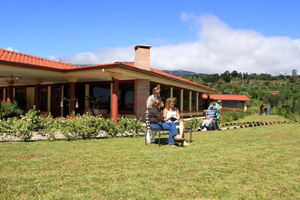Five pointers for booking a medical vacation

The pura vida-living, Imperial beer-drinking, gallopinto-eating Central American country of Costa Rica continues to grow as a medical tourism destination.
With one of the longest life expectancies in the hemisphere and ranked the happiest country on the planet by the New Economics Foundation’s Happy Planet Index, Costa Rica has tremendous appeal for those looking to combine quality, affordable medical care with a tropical vacation. The country’s proximity to the United States, well-trained health professionals and three hospitals accredited by the Joint Commission International (JCI) – an organization that develops health care standards around the world – make it an ideal destination for patients seeking quality care (TT, Jan. 28). Last year alone, an estimated 100,000 traveled to Costa Rica for medical tourism, up from 60,000 the year before.
Luis Diego Osborne, vice president of the Council for International Promotion of Costa Rica Medicine (PROMED), doesn’t expect interest to slow.
“The medical tourism market here is becoming more consolidated,” he said. “More providers are becoming accredited, more relationships are being formed with companies in the health industry in the United States, Canada and Europe, and, as prices rise in developed countries, there’s more interest in seeking care abroad.”
Yet traveling for a health procedure is not as easy as selecting a destination and pressing “purchase.” If you are considering going abroad, medical tourism experts offer the following five tips.
1. Get informed. Offerings for medical procedures abroad are endless, and an initial Google search will pull up wide-ranging prices, packages and standards of service. Some of the many questions you should ask: How far are you willing to travel for care? How much time can you take off? Is there anything you want to see while you are visiting the country? What kind of aftercare will you receive? How much will be done for you and how often will you be left on your own? Are you protected if something goes wrong?
Ronald García, owner of Hotel Refugio de Montaña (www.refugiodemontana.com), a recovery center in San Pedro de Poás, northwest of San José, advised, “Collect as much information as possible. The best thing you can do is compare prices and be clear as to exactly what is being offered.”
2. Look for the seal of appro2. Look for the seal of approval. Not all health care providers offer the same guarantee of service. A handful of health institutions and individual doctors have jumped through all the hoops and achieved accreditation. Osborne recommends looking for the PROMED stamp or that of the American Association for Accreditation of Ambulatory Surgery Facilities (AAAASF). If the facility or professional you are interested in doesn’t have any accreditation, the best you can do is ask for and check references.val. Not all health care providers offer the same guarantee of service. A handful of health institutions and individual doctors have jumped through all the hoops and achieved accreditation. Osborne recommends looking for the PROMED stamp or that of the American Association for Accreditation of Ambulatory Surgery Facilities (AAAASF). If the facility or professional you are interested in doesn’t have any accreditation, the best you can do is ask for and check references.
3. Know where you are staying. In his two years in medical tourism, García has noted that people spend an exhaustive amount of time looking for a clinic or surgeon and almost no time researching where they will go when they are done. “Post-procedure care is a fundamental part of the experience,” said García, whose hotel offers all-inclusive amenities such as medical care, transportation and meals.
Tags: CostaRica Wellness | Category: CostaRica Wellness